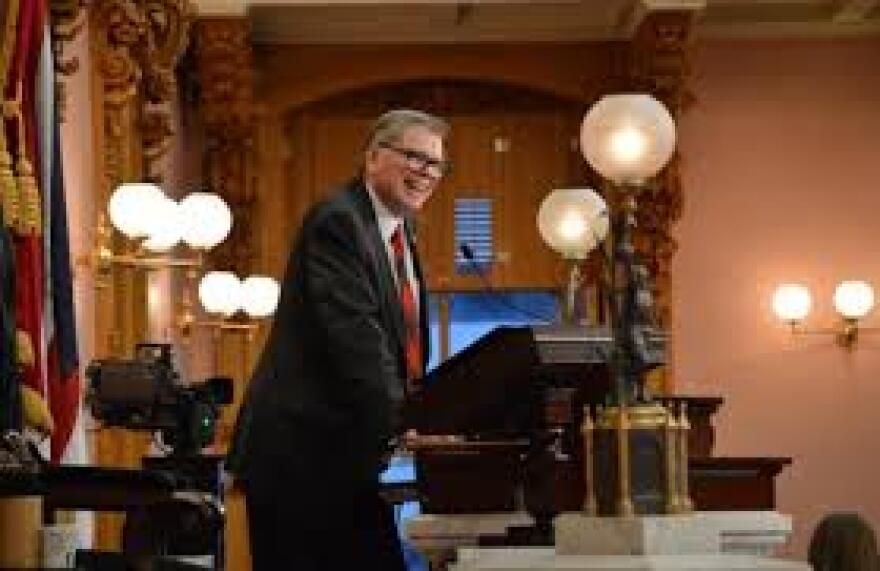State Lawmakers are considering a measure that would again ask voters to approve expanding term limits.
Ohio Public Radio's Andy Chow reports.
At the end of 2014 William Batchelder, the second longest-serving representative in Ohio House history, retired from his post as speaker—not necessarily because he chose to but because he had to.
Batchelder, along with long-time Democratic Representative Vern Sykes, both left the chamber for the second time because of term limits, which say lawmakers can only stay in the same office for eight consecutive years.
Fred Mills—former chief of staff for the Ohio House—would like to see term limits go away. He says the limits, which were approved by voters in the early 90’s, mean leaders with strong institutional knowledge—such as Batchelder and Sykes—get the boot too soon.
“We threw out 800 years of experience in ’92. I think we have inherent term limits—they’re called elections,” said Mills.
Mills is part of the Ohio Constitutional Modernization Commission, which has been discussing ways to reform the Ohio constitution. And term limits is the next issue on their radar.
Right now there are two proposals on the table for the committee. Both would extend term limits from eight consecutive years to 12 consecutive years.
Proponents say this will go a long way in restoring some of that institutional knowledge. But opponents, such as Rob Walgate with the conservative-leaning American Policy Roundtable, says there’s no public outcry for extending term limits. He believes the idea that the limits are a problem has been generated by lawmakers and lobbyists from inside Capitol Square.
“Have you met anyone on the street that’s said ‘you know what I think elected officials need to serve longer.’ Have you come across any of those people cause I haven’t. The only people that talk about that are the people walking these halls,” Walgate said.
John Green is the director of the University of Akron’s Bliss Institute. He says Walgate is correct, in part – most polls do show that Ohioans favor term limits. But Green adds that there is evidence that people would support lengthening term limits to—once again—restore some of that institutional knowledge.
“When you have a president of the Senate or a speaker of the House who’s been there for a few years and could maybe serve as many as 12 then there’s just a much higher learning curve—they have much more information about the complex elements of public policy,” Green explained.
There are some variables to consider when it comes to expanding term limits. One of the proposals before the committee would extend term limits and include current lawmakers. The other would only extend term limits for newly elected officials.
Catherine Turcer for the liberal-leaning group Common Cause Ohio is all for extending term limits but fears the first option—extending the years for current lawmakers—could seem self-serving.
“Much like I do not believe legislators should on their own pay raises—I do not believe that legislators should be able to extending their own terms,” Turcer said.
Former House Speaker and committee member Jo Ann Davidson sees it a different way.
“To a certain extent I think that we step on our own argument which to me I think is the most important argument here and that’s retaining some long-term legislative history and experience in the Legislature. If you put the option on that does not apply to the current members you’re saying well that’s really important but let’s wait another five years before we actually try to do that,” said Davidson.
As for those two term limits proposals – either would have to get approval from the full Constitutional Modernization Commission, and then could go to the General Assembly. If the Legislature approves, then voters would decide.
The committee is expected to make its decision at the next meeting in April. The commission could vote on a term limits proposal by May.




